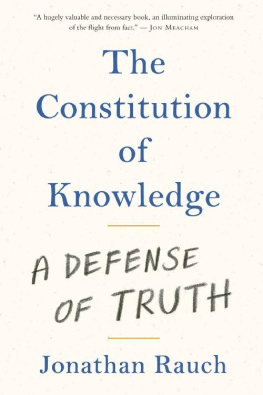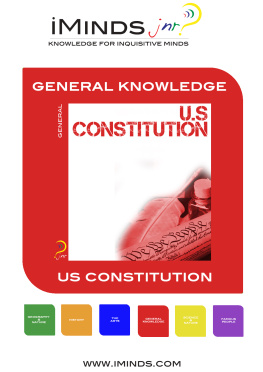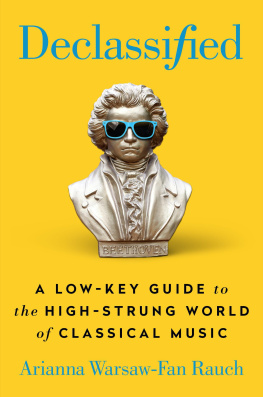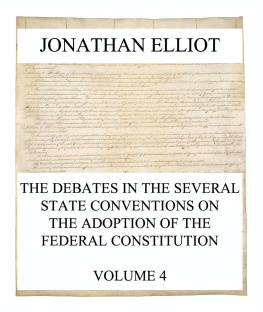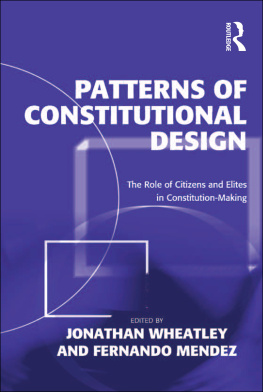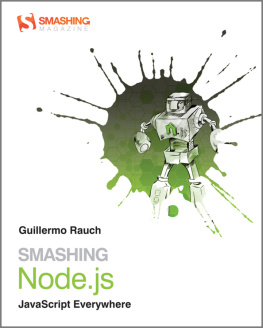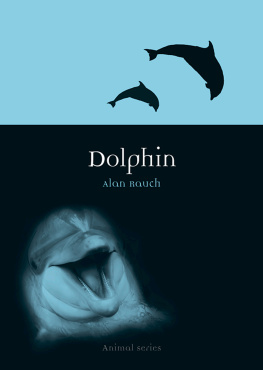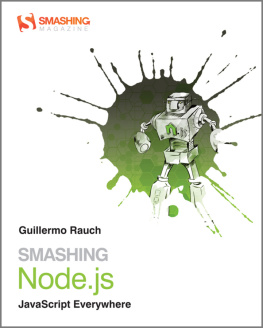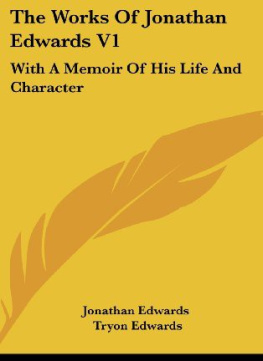Jonathan Rauch - The Constitution of Knowledge
Here you can read online Jonathan Rauch - The Constitution of Knowledge full text of the book (entire story) in english for free. Download pdf and epub, get meaning, cover and reviews about this ebook. year: 2021, publisher: Brookings Institution Press, genre: Politics. Description of the work, (preface) as well as reviews are available. Best literature library LitArk.com created for fans of good reading and offers a wide selection of genres:
Romance novel
Science fiction
Adventure
Detective
Science
History
Home and family
Prose
Art
Politics
Computer
Non-fiction
Religion
Business
Children
Humor
Choose a favorite category and find really read worthwhile books. Enjoy immersion in the world of imagination, feel the emotions of the characters or learn something new for yourself, make an fascinating discovery.
- Book:The Constitution of Knowledge
- Author:
- Publisher:Brookings Institution Press
- Genre:
- Year:2021
- Rating:3 / 5
- Favourites:Add to favourites
- Your mark:
- 60
- 1
- 2
- 3
- 4
- 5
The Constitution of Knowledge: summary, description and annotation
We offer to read an annotation, description, summary or preface (depends on what the author of the book "The Constitution of Knowledge" wrote himself). If you haven't found the necessary information about the book — write in the comments, we will try to find it.
The Constitution of Knowledge — read online for free the complete book (whole text) full work
Below is the text of the book, divided by pages. System saving the place of the last page read, allows you to conveniently read the book "The Constitution of Knowledge" online for free, without having to search again every time where you left off. Put a bookmark, and you can go to the page where you finished reading at any time.
Font size:
Interval:
Bookmark:

Advance praise forThe Constitution of Knowledge
Long one of the countrys wisest and most honest voices, Jonathan Rauch has written a hugely valuable and necessary book, an illuminating exploration of the flight from fact. If, as the Gospel of John put it, the truth shall set us free, then count Rauch among the liberators.
JON MEACHAM,
historian; author of His Truth Is Marching On: John Lewis and the Power of Hope
Liberty, of course, requires constant vigilance, but who would have thought until recently that the idea of truth needed defending? Sadly, we now see that it does, but happily, Jonathan Rauch has come to the rescue of both truth and liberty in this thought-provoking, essential work.
MITCHELL E. DANIELS, JR.,
president, Purdue University; former governor of Indiana
Once waged primarily on the turf of government censorship, the battle for free speech and an open society has shifted toward the new terrains of social media, cancel culture, and rampant disinformation. Starting from first principles and applying them to headlines as recent as the storming of the U.S. Capitol in 2021, The Constitution of Knowledge provides the map weve been waiting for. In my forty years of work on behalf of the values our democracy depends on, Ive seen a handful of landmark books come along. This is one of them.
NADINE STROSSEN,
John Marshall Harlan II Professor of Law, Emerita, New York Law School; former president, American Civil Liberties Union, 19912008
Why cant we have shared facts anymore? The most profound and useful answer is contained in this book. Jonathan Rauch shows us how it is that societies ever come to know things. It is only after we appreciate the miracle of knowledge production (the constitution of knowledge) that we can understand the tragedy befalling us now, as key institutions and practices decay. This book is a magnificent integration of psychology, epistemology, and history. It is a joy to readdeep insight after deep insight, embedded in playful writing, about one of the most important problems of the 2020s.
JONATHAN HAIDT,
Thomas Cooley Professor of Ethical Leadership, NYU-Stern School of Business; author of The Righteous Mind; co-author of The Coddling of the American Mind
The digital age was supposed to bring about the blessings of unlimited knowledge fueled by radically egalitarian free speech allowing everyone to access, share, and learn from freely available information to the benefit and progress of all. Instead, an epistemic crisis supercharged by viral disinformation and indifference to truth has bred deep cynicism about the benefits of free speech and the liberal ideals that underpin this increasingly unpopular idea. In his unputdownable new book, Jonathan Rauch provides both a surgically precise diagnosis and a promising cure for the ailments that torment the twenty-first century with its crisis of authority, distrust, and rampant tribalism. We ignore Rauchs warning and prescription at our own peril.
JACOB MCHANGAMA,
founder and CEO, Justitia
The Constitution of Knowledge

A Defense of Truth
JONATHAN RAUCH
BROOKINGS INSTITUTION PRESS
Washington, D.C.
Copyright 2021 by Jonathan Rauch
THE BROOKINGS INSTITUTION
1775 Massachusetts Avenue, N.W.
Washington, D.C. 20036
www.brookings.edu
All rights reserved. No part of this publication may be reproduced or transmitted in any form or by any means without permission in writing from the Brookings Institution Press.
The Brookings Institution is a private nonprofit organization devoted to research, education, and publication on important issues of domestic and foreign policy. Its principal purpose is to bring the highest quality independent research and analysis to bear on current and emerging policy problems. Interpretations or conclusions in Brookings publications should be understood to be solely those of the authors.
Library of Congress Control Number: 2021936756
ISBN 9780815738862 (hc)
ISBN 9780815738879 (ebook)
9 8 7 6 5 4 3 2 1
Typeset in Sabon Pro
Composition by Elliott Beard
For my father
Oscar C. Rauch
In loving memory
Write if you get work.
- Contents
Chaos and conformity have caused an epistemic crisis
In the public square of Athens, a homely, snub-nosed, bulgy-eyed old man encounters a homely, snub-nosed, bulgy-eyed young man. Hailing the young man and remarking on their resemblance, Socrates begins a conversation with Theaetetus and sets out to determine whether they also resemble each other in their love of philosophy. Theaetetus protests that he is no great intellect; philosophical puzzles make him quite dizzy, wondering whatever they can mean. Ah! Then you are a philosopher: This sense of wonder is the mark of the philosopher, insists Socrates. Philosophy indeed has no other origin.
With that, in a conversation imagined by Plato 2,400 or so years ago, the old man commences to lead his new friend on an expedition into the densest thickets of epistemology. What is knowledge? What is error? How does error arise? Why is error even possible? Each question would seem to have an obvious answer, yet each obvious answer collapses upon examination.
Perhaps knowledge is correct perception of the world? But perception varies between individuals; it varies, too, within individuals. A wine which tastes sweet when I am well may taste bitter the next day, when I am ill. There are dreams and hallucinations, all imaginary yet seeming real. Each of us is a parade of changing perceptions, but our shifting personal palimpsest can never be the same as knowledge, as reality.
Well, then, perhaps knowledge is true judgment, true belief? But we may hold random or ignorant views which merely happen to be true; we may guess or conjecture and be proven right through pure luck; yet lucky guesses are surely not the same as knowledge. Our own confidence in our beliefs is no good, for we may feel sure but be in error.
Perhaps, then, knowledge is true belief or true judgment plus an account, an explanation. That seems more like it. But no, Socrates spins us around again. How can we judge the truth of the account without also knowing the truth of the subject of the account? If the account is based on a distinction, for example, and if the distinction is comprehensible and persuasive, then we must already have knowledge of the thing we are explaining: otherwise the distinction would not enlighten us. Relying on an account traps us in circularity: we cannot have knowledge without an account, but we cannot have an account without knowledge.
So, Theaetetus, says Socrates to the younger version of himself, neither perception, nor true belief, nor the addition of an account to true belief can be knowledge. Replies the young man, presumably confirmed in his belief that philosophy is dizzying, Apparently not. And here the conversation ends abruptly in defeat, leavened only by Socratess assurance that at least the two of them are clearer on what it is they do not know, and therefore will be humbler and more agreeable to their companions.
So much ratiocination, so much spadework, leading nowhere? Perhaps. And surely disappointing. But tomorrow morning, says Socrates, let us meet here again. The conversation will continue. Not, tragically, for Socrates; he would soon be executed for impiety. But the conversation outlived him and continues to this day. At age eighteen, as a college freshman, I encountered
Font size:
Interval:
Bookmark:
Similar books «The Constitution of Knowledge»
Look at similar books to The Constitution of Knowledge. We have selected literature similar in name and meaning in the hope of providing readers with more options to find new, interesting, not yet read works.
Discussion, reviews of the book The Constitution of Knowledge and just readers' own opinions. Leave your comments, write what you think about the work, its meaning or the main characters. Specify what exactly you liked and what you didn't like, and why you think so.

